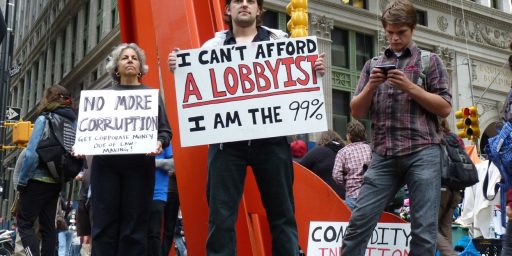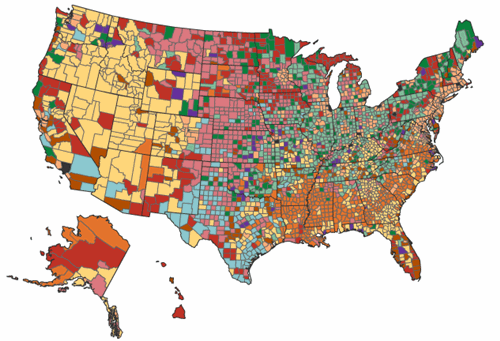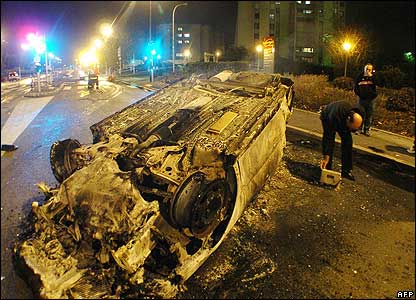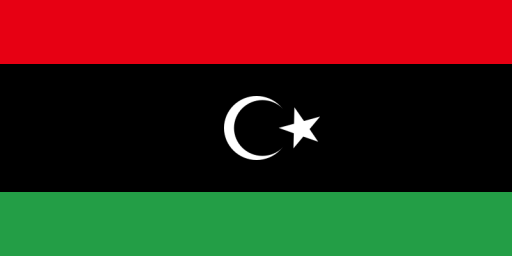A Nonpartisan Plea
A request to all politicians:
Please stop using the phrase “Main Street.” It’s like nails on chalkboard. Seriously. Especially when juxtaposed with “Wall Street.”
Speaking of which, do towns even have Main Streets anymore? Apart from big cities, I mean? I live in a suburb of 140,000+ people in the middle of flyover country and we don’t have one.






I grew up on the street right behind Main st. it’s the place we hold our 4th of July parades. City of 80k people Racine,WI.
When I lived in Connecticut in the late 80’s, my office had a state-wide real estate law practice (which was described to me by the son of the senior partner, who himself became partner while I was there as “We lend money at 15% interest and 5 points to people who can’t afford to pay us back so we can foreclose on their houses and make even more money”), I visited about a third of the towns in the state to check real estate records (which are stored at the town level, not the county or state). Nearly every town I went to had its government building on its own Main Street.
We have one here in Wasilla: http://maps.google.com/maps?hl=en&client=firefox-a&q=main+st.,+wasilla+ak&ie=UTF8&z=15&iwloc=addr
Your suburb may not have a main street, but I would imagine that the “urb” that you are a “sub” to has one. Every city around where I live has a Main St.
Hrmmm – I live in a town with a Market Street – no Main Street here, but Market Street serves that purpose. The town in Western PA I grew up in had a Philadelphia Street, which is the street that the town is based on. So even if you have something like a Main Street, it may not be called that.
Most American cities I’ve lived in have had a ‘Main Street’. Notable exceptions: Detroit, MI and Washington, DC.
If by ‘Main St.’ one means the principal business street of a city, regardless of actual name, well even most towns and villages have those.
More interesting to me is why that business district is sometimes called ‘downtown’ and sometimes called ‘uptown’.
Michael,
The “urb” does, as do most big cities. Of course, in my “urb” there’s virtually no housing on Main Street, just businesses.
But getting back to the point, shouldn’t politicians stop using the term? Yes, yes they should.
Yeah, from my experience most Main Streets are business oriented, in the middle of (often “historic”) downtown. However, they’re almost always small locally-owned businesses, so the appeal to “Main St.” still applies, especially when discussing economic factors.
Nearly all cities and towns in the United States have main streets although not all are called “Main Street”. In New England and the Midwest there’s a standard town layout in which the main street runs past a town square, city hall, or, particularly in New England, the town church.
Some towns have multiple main streets. For example, Evanston, Illinois has three (Central, Dempster, Main). These were the main streets of the three municipalities (South Evanston, Evanston, North Evanston) that incorporated together to form the present city.
Bedroom suburbs in areas developed after 1960 sometimes have no main streets. However, I think it’s a handy shorthand for business other than Wall Street.
On the other hand we should avoid cliches like the plague.
“But getting back to the point, shouldn’t politicians stop using the term? Yes, yes they should.”
Umm, why? As Dave Schuler noted, it’s a handy shorthand for local business interests. Most politicians like those interests, as it shows they are focused on their community, not the Big Bad out-of-state interests like the financial community or the Washington Bureaucracy. To most people, it is a term which has a real meaning, and no other shorthand has the same meaning. So what exactly is the objection?
The British/Irish/Scots use ‘High Street’ as the metaphorically functional equivalent of our ‘Main Street’.
My home town in New England had both a High Street and a Main Street. High Street was the busier one.